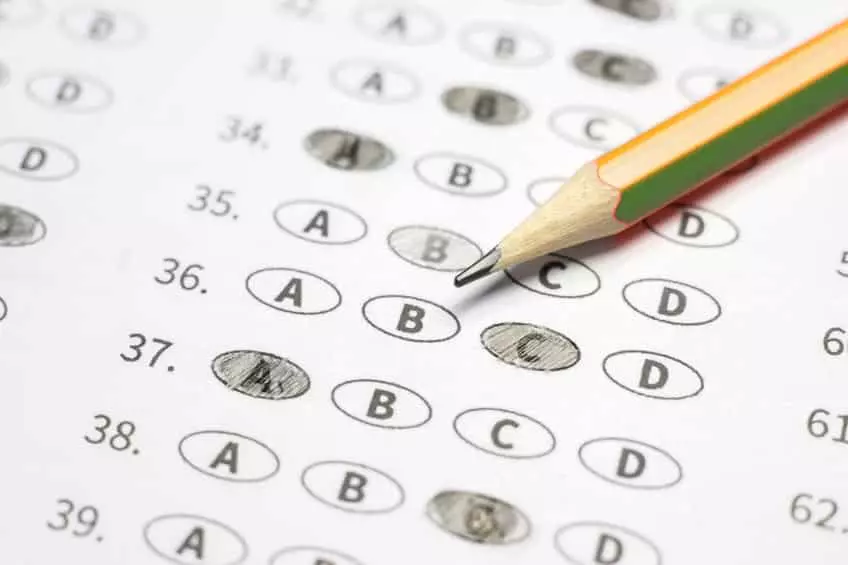
On Tuesday, the College Board, an organization that is associated with a variety of college entrance exams, announced that in 2024, the SAT will be administered digitally. Other changes coming to how students navigate this test include the use of calculators by test takers; the SAT will also be shortened in length by an hour.
The pandemic has changed the face of education, and this change is just one of many for today’s high school students. At one time, the test was administered using scantron sheets; students will no longer need to worry about filling in the entire bubble with a number two pencil when taking this college entrance exam.
NEW: Beginning in Spring 2023 (international) and Spring 2024 (U.S.), students will take the SAT on laptops and tablets in a school or test center. Learn more about the digital SAT: https://t.co/qjzeOOxmjK. pic.twitter.com/qolGEgTEMi
— The College Board (@CollegeBoard) January 25, 2022
This particular college entrance exam has seen its share of criticism. There are those who say the test favors white students who are wealthy. Many universities have already begun to adopt policies making the college entrance exam an option. Some students do not even include their scores in the application process.
The College Board did say that although tests included in the SAT Suite of Assessments – including the SAT, PSAT/NMSQT, the PSAT 8/9 and the PSAT 10 exams, will still be administered in a school setting or at a testing center, with proctors present. These tests will not be taken in a home setting, even though they will soon be exclusively digital.
Beginning in 2023, the SAT will be administered internationally via a digital format; however, digital testing in the United States will not take place until 2024. In 2023, only the PSAT/NMSQT and the PSAT 8/9 will be delivered digitally; in 2024, these tests, along with the PSAT 10, will all become digital.
The Vice President of College Readiness Assessments at College Board, Priscilla Rodriguez, spoke about the upcoming change: “The digital SAT will be easier to take, easier to give, and more relevant. We’re not simply putting the current SAT on a digital platform . . .we are adapting to ensure we continue to meet (students’) evolving needs.” Rodriguez also related that College Board was “taking full advantage” of being able to create a digital assessment.
According to College Board, of students who were allowed to take a pilot version of a digital SAT, eighty percent said the new method of testing was less stressful. The College Board did state that they are aware of possible technology issues for some students, particularly those who do not have access to the type of technology necessary to take a digital test of this magnitude. The organization said they will allow students to use their own tablet or laptop in this incident. A school-issued device was also permissible. However, if students do not have access to a suitable device – either their own or one owned by the student’s school district, College Board would provide this for the day of the test.
Other issues that the College Board is aware of – and is addressing – is a loss of connection or power to said device during testing. In order to prevent the loss of a student’s previous work, the organization has designed the digital exam so that work will not be lost while a device reconnects. Also, the exam is being configured so that the student will still have the same amount of time to complete tasks.
The College Board has described these changes as “student and educator-friendly.” The organization has also changed the time necessary to take the SAT – from three hours to two. Students will also have more time to complete each question.
In addition, the exam will now feature shorter reading passages, and there will only be one question per passage (students currently may have multiple questions per each passage). The College Board will now allow for the use of calculators while taking the exam, and the reading passages will now reflect written works that students will encounter in college.
Furthermore, changing the current format of the SAT allows for students to receive their scores within a matter of days (currently, students may wait weeks for their scores).
The ACT and the SAT have come under fire recently as critics propose that these tests tend to present a disadvantage to minority students. Harvard University recently announced that scores from standardized tests would not be required for at least the next four years.
Earlier this week, the Supreme Court announced it would hear oral arguments in cases involving the University of North Carolina as well as Harvard; in these cases, the schools are accused of discriminating against white and Asian American students by utilizing race at every step of the admissions process.





